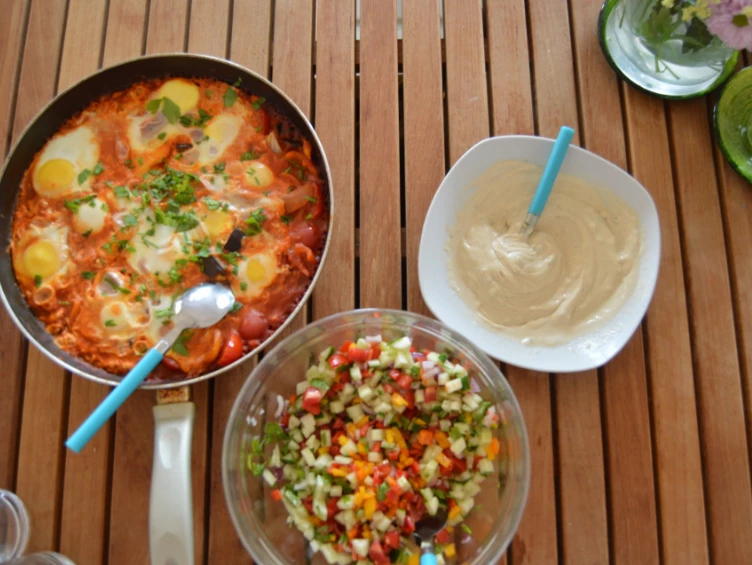
I can remember one of the first times I realized I wanted to be a chef, long before I even began working in the kosher travel world. It was when I set out on a quest to figure out the PERFECT over-easy eggs. (Sunny-side-up eggs that are briefly flipped over, ensuring that your yolks are runny but the white is set.) Determined to discover how to make them perfectly, every time, I began to research one of the most basic of foods–eggs.
Eggs are often the first (for some, only) thing we learn how to cook. They are so basic that we rarely give them a second thought. However, this humble protein is a culinary workhorse – healthy, versatile, and most of all, delicious. Celebrity chefs such as Gordon Ramsay and Wolfgang Puck maintain that the way an egg is cooked can be the ultimate way of discerning a skilled chef.
There are many different ways to cook an egg. You can boil, poach, and fry them, turn them into an omelette, souffle, or clafoutis. You can preserve egg yolks for a rich, unusual garnish, or gently cook them into a silky custard. Egg whites will whip up to ten times their original size and can turn into hard meringues, soft cake toppings, or become part of a buttercream. Topping many dishes with a poached egg adds instant wow factor. With such a wide range of uses, it is worth knowing your way around this vital ingredient.

Eggs are made of two parts – the yolk and albumen. Albumen is the “white” of an egg. A good way to tell how fresh your egg is is by looking at the albumen. Crack the egg and pour it from the shell onto a plate (don’t separate the yolk from the white!) When an egg is fresh, the albumen will be thick and will only have a small amount of watery, thin white. As eggs age, the albumen turns thin and runny.
One might assume that fresh is always best, and in most cases, that is true. Eggs can stay good for about 1-3 months, depending on whether they’re stored in the fridge or not. (Which is a whole interesting discussion in itself, and one worth googling.) When poaching eggs or making over-easy eggs, fresh is always necessary, as the tightness of the whites ensures that the egg holds together, and poaches or fries beautifully. Some claim that using older eggs for boiling helps them peel more easily. This helpful article discusses the perfect way to boil eggs, for the food scientist among us. For the rest of you, the tl;dr version says: start your eggs in boiling water, 6 minutes for soft-boiled, 8 minutes for medium, and 11 minutes for hard-boiled. Shock them in ice water for ease of peeling, and enjoy your perfectly made eggs!
There are a million guides out there: the guide to the perfect omelette, poached egg, souffle, and much more. Here at Kosher Culinary Travel, we encourage you to discover the magic that lies beneath the surface of seemingly mundane ingredients, dig deep, and learn some new things about the world.



